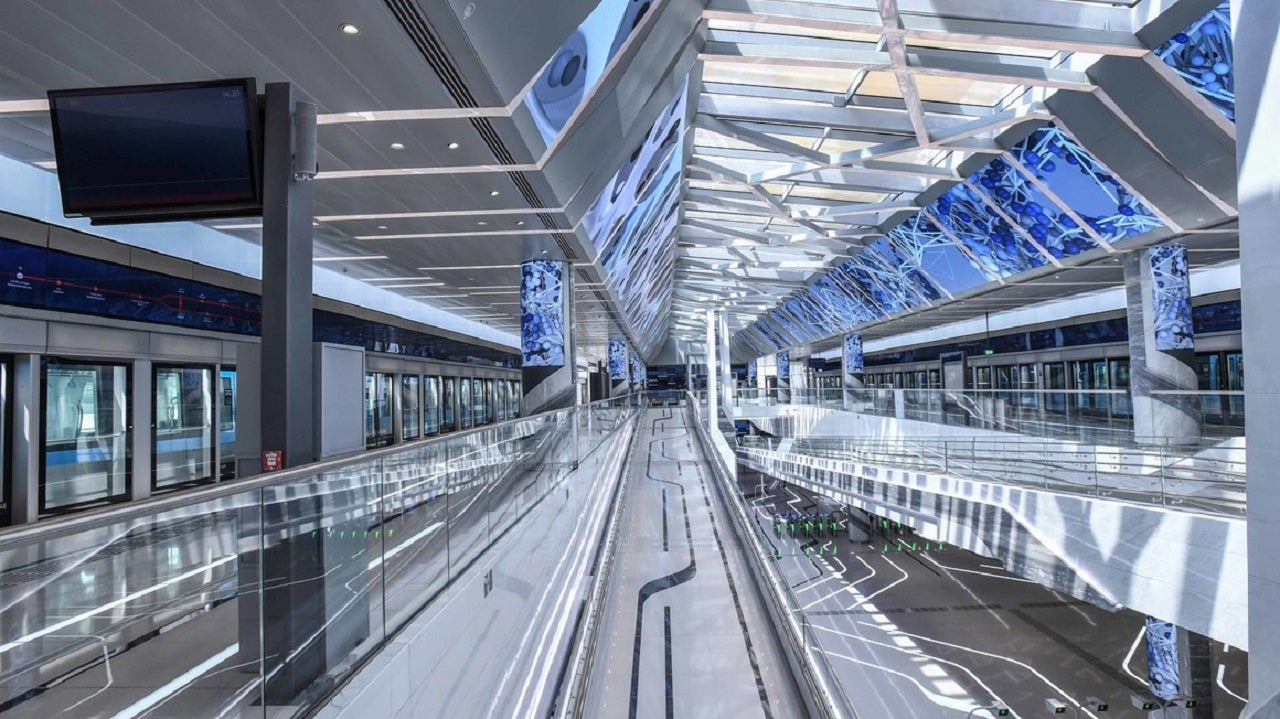
Alstom has announced that Dubai’s Roads and Transport Authority (RTA) has started revenue service of the Dubai Route 2020 Metro.
As part of the driverless metro project, a fully interoperable extension and the current transport system’s performance were also improved.

Discover B2B Marketing That Performs
Combine business intelligence and editorial excellence to reach engaged professionals across 36 leading media platforms.
Construction on the line commenced in 2016 and was carried out by the Alstom-led ExpoLink Consortium, consisting of Alstom, ACCIONA and Gülermak.
The new line project consists of a 15km-long line, of which 11.8km is above ground and the remaining 3.2km runs below. The line also features an interchange on the Red Line.
The metro route has seven stations, including the Jabal Ali Station and the flagship metro station at the World Expo exhibition site.
The total value of the project stands at around €2.6bn.

US Tariffs are shifting - will you react or anticipate?
Don’t let policy changes catch you off guard. Stay proactive with real-time data and expert analysis.
By GlobalDataAs part of the consortium, Alstom integrated the entire metro system, including power supply, communication, signalling, automatic ticket control, track works and 50 Metropolis trainsets produced at Alstom’s site in Katowice, Poland.
Alstom also enhanced the existing metro line by upgrading power supply, communication, track works and signalling systems.
The 85.5m-long trainsets running on this metro route each compose five cars, with a capacity to carry up to 696 passengers a trainset.
Alstom Middle East managing director Mama Sougoufara said: “I am delighted to see our trains enter the revenue operation. At Alstom, it is our mission to support the transition towards global sustainable transport systems that are inclusive, environmentally friendly, safe and efficient, while implementing socially responsible transport solutions.
“The opening of the Dubai Route 2020 Metro shows Dubai and the RTA’s commitment to providing a sustainable and environmentally-responsible mobility as this project is expected to ease the traffic congestions in the areas it serves by approximately 15%-20% and expected to reduce carbon emissions by 120,000t by 2025.”
The train features large doors and windows, wide gangways, and three specific areas for different passengers.
The eco-friendly train is loaded with an electrical braking system, LED lighting and other innovations to minimise energy consumption.
The company said that its Harmonic Energy Saver Optimizer (HESOP), which recovers the electrical energy produced by the trains during braking, is also featured on the train.
Previously, Alstom supplied the Dubai tramway, the first fully integrated tramway system in the Middle East and the world’s first 100% catenary-free line.
This system commenced services in November 2014.
Alstom is also responsible for the maintenance of the Dubai Tram for a period of 13 years.



